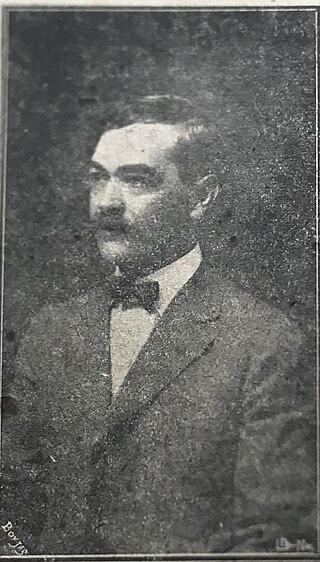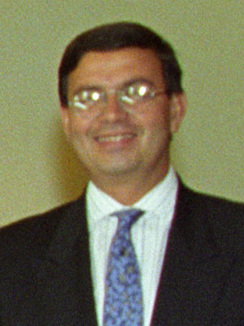
Tiburcio Carías Andino was a Honduran politician and military officer with the rank of major general. Thirty-eighth president of the Republic of Honduras, constitutional period from 1924 and thereafter in the form of a dictatorial regime for 1932 until 1949. He was elected president of Honduras in the midst of a deep world depression. He strengthened the Armed Forces, maintained the support of the banana companies by opposing strikes, strongly aligned its government with that of the United States, and kept the country in strict adherence to debt payments.

Vicente Mejía Colindres was President of Honduras between 16 September and 5 October 1919; and again between 1 February 1929 and 16 November 1932.

Legislative elections were held in El Salvador on 8 March 1970. The result was a victory for the National Conciliation Party, which won 34 of the 52 seats. However, the election was marred by massive fraud. Voter turnout was just 41.6%.

The UNCAF Nations Cup 2009 was the tenth edition of the UNCAF Nations Cup, the biennial football (soccer) tournament for the CONCACAF-affiliated national teams of Central America. The first five places qualified for the 2009 CONCACAF Gold Cup. The event was going to take place in Panama City, Panama between January 22 and February 1, 2009, but the Panamanian FA announced that they would not host the event due to not having an adequate stadium available for the time period of the tournament. The alternative hosts were Honduras and Guatemala. Honduras submitted an official replacement bid on November 12, and after some consideration it was moved to Honduras. All games were played in Estadio Tiburcio Carías Andino in Tegucigalpa. The tournament was sponsored by Digicel. On 1 February 2009 Panama won the tournament, the first UNCAF Nations Cup win in the country's history.

General elections were held in Honduras on 26 November 1989. Voters cast a single ballot for both the presidential and Congressional election.

General elections were held in Honduras on 27 November 1993. Voters cast a single ballot for both the presidential and Congressional election.

Constituent Assembly elections were held in Honduras on 20 April 1980. In July the Assembly elected Policarpo Paz García as president.
General elections were held in Honduras on March 28, 1971. Voters went to the polls to elect a new President of the Republic and a new Congress. The two main parties, the National Party and Liberal Party, had agreed before the election to split the Congressional seats equally between them, with each party being awarded 32 of the 64 seats. Additional one seat was to be allocated to the winner of the presidential elections as the president was entitled to one seat in parliament, while both parties were to be equally represented in the Supreme Court in all state institutions including the Government. Ramón Ernesto Cruz Uclés of the National Party won the presidential election with 53% of the vote. Approximately 40% out of total of around 900,000 voters abstained from voting at the elections. Some of the major topics at the elections was the issue of commitment to continued participation in the Central American Common Market and approach to the relations with El Salvador after the Football War.

Constituent Assembly elections were held in Honduras on 12 February 1965. The Constituent Assembly subsequently elected Oswaldo López Arellano as president.

Constituent Assembly elections were held in Honduras on 22 September 1957. In November the Assembly elected Ramón Villeda Morales as president.

Constituent Assembly elections were held in Honduras on 7 October 1956. Prior to the elections, President Julio Lozano Díaz established his own party, the Party of National Unity. The elections were allegedly heavily rigged and the PUN won all 58 seats.

General elections were held in Honduras on 10 October 1954. The elections were relatively honest. and saw Ramón Villeda Morales of the Liberal Party emerge as the most popular presidential candidate with 48% of the vote. However, the constitution required Congress to confirm the president if no candidate received a majority in the popular vote. The Liberals did not have a majority in Congress, and the National Party and National Reformist Movement (MNR) agreed to block Villeda's candidacy, although they were unable to agree on a candidate of their own. The two parties boycotted the confirmation session in November – an idea proposed by US Ambassador Whitting Willauer – meaning those present did not form a quorum.

General elections were held in Honduras on 10 October 1948. The elections were boycotted by the Liberal Party as the party was restricted from campaigning. Instead, they called for the electorate to abstain from voting.

Constituent Assembly elections were held in Honduras on 26 January 1936.

Legislative elections were held in Honduras in October 1930.

General elections were held in Honduras on 28 October 1928. Vicente Mejía Colindres of the Liberal Party was re-elected as president, becoming the first incumbent to be re-elected in peaceful and contested elections.

General elections were held in Honduras on 28–30 December 1924. Miguel Paz Barahona was elected president and his National Party won all but one of the seats in Congress.

General elections were held in Honduras between 26 and 28 October 1919. Rafael López Gutiérrez of the Liberal Party won the presidential election with 81% of the vote.

General elections were held in Honduras between 27 and 29 October 1923. Tiburcio Carías Andino won the presidential election with 47.1% of the vote. However, as no candidate had received an absolute majority in the public vote, Congress would vote on the candidates. However, Congress did not meet again until 1 January the following year. In December President Rafael López Gutiérrez declared a state of siege, suspended the constitution, and announced that he would remain in office in order to keep the peace. Although Congress was dominated by the two liberal parties, they did not want Carías, but also could not agree on a common candidate.
The El Salvador–Honduras football rivalry is a sports rivalry between the El Salvador and Honduras national football teams. The rivalry between the two nations peaked in 1969 when both teams played each other in the 1970 FIFA World Cup qualifiers, and the matches they played between each other, which ultimately saw El Salvador advance to the 1970 FIFA World Cup, were a contributing factor which led to the outbreak of the Football War in July 1969.







